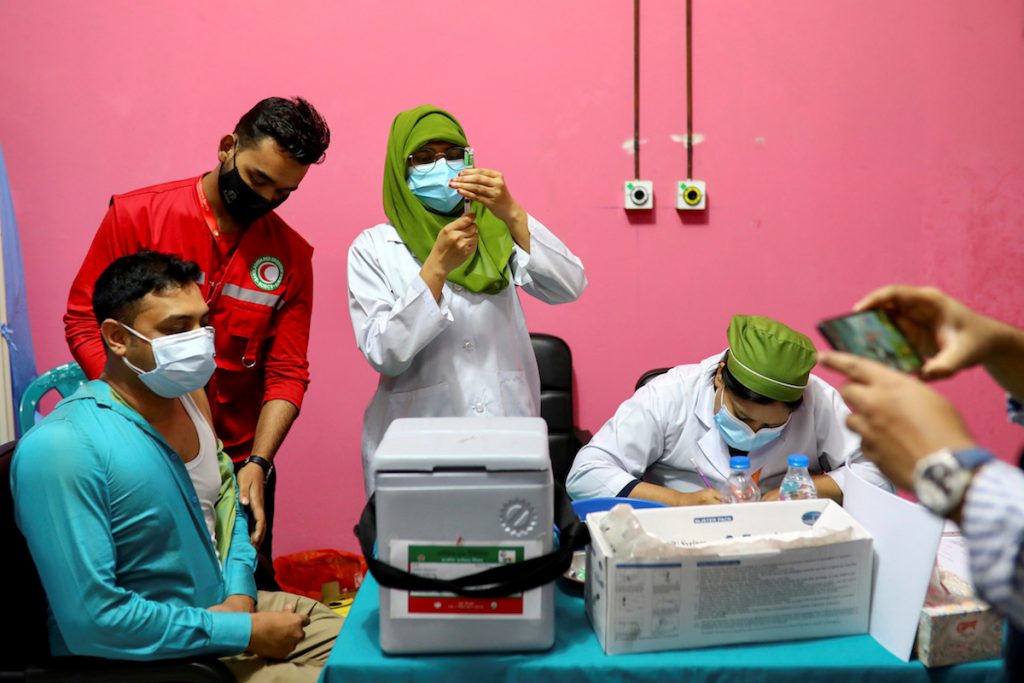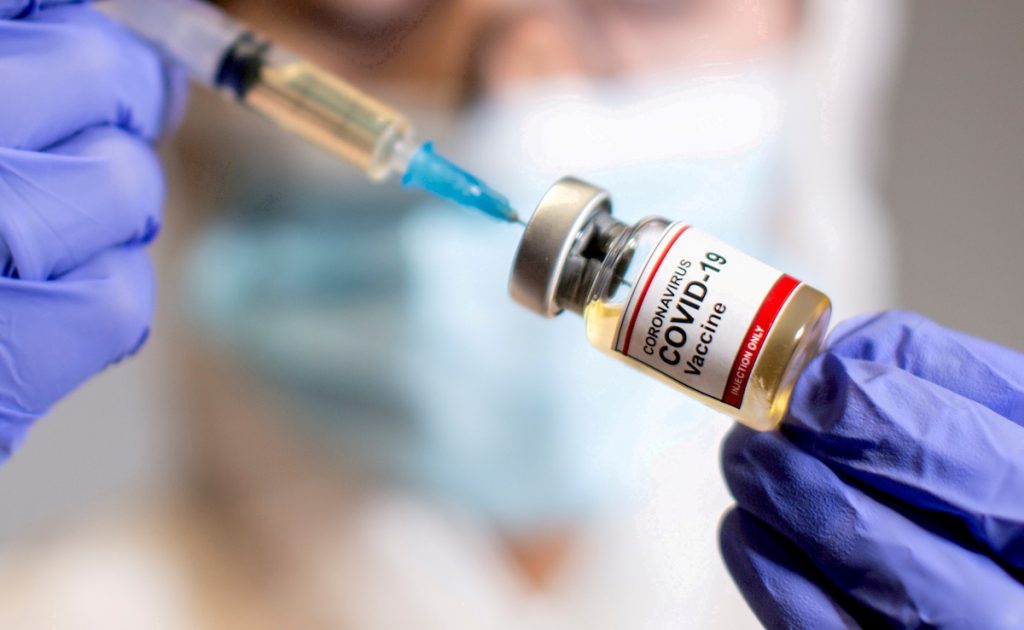Marginalized groups in South Asia are being denied access to COVID-19 vaccination programs largely due to a lack of awareness and limited access to technology, Amnesty International has said.
Amnesty said that among those in danger of not getting a vaccine shot in the region includeslum dwellers, Dalits, ethnic minorities, workers including laborers, people in rural areas, prisoners, and internally displaced people.
The South Asian region consists of the countries of Afghanistan, Pakistan, India, Nepal, Bhutan, Bangladesh, the Maldives, and Sri Lanka.
The rights group added that others including refugees and migrants have been excluded entirely from government vaccine campaigns in many countries up to now.
“As vaccine campaigns have been rolled out, marginalized groups across South Asia have been effectively locked out by practical barriers,” said Yamini Mishra, Amnesty International’s Asia-Pacific director.
“South Asia’s governments must ensure fair and equitable access to vaccines for everyone irrespective of caste, socio-economic or other status, race, or nationality,” Mishra said.
The rights group said that underprivileged communities across South Asia do not have access to smart phones and other mobile devices, which are required in most cases to register online for vaccines and where most public health information is disseminated.

Misperception among rural people
Due to a lack of access to government plans and information sharing mechanisms on vaccine rollouts, a misperception among rural people that COVID-19 is a concern only for urban and city dwellers persists in countries such as Bangladesh, Amnesty said.
In Sri Lanka, limited communication around dates, venues and eligibility for vaccines is a barrier for people to access vaccinations.
There is no information available about the plan for COVID-19 vaccines and immunizing the broader population in some countries such as Afghanistan, Pakistan and Sri Lanka, the rights group added.
Meanwhile, vaccination plans that have been developed by countries like Bangladesh for holistic coverage of the population are not reflected in their implementation, such as efforts to inoculate cleaning workers, unskilled wage earners and people in lower income groups.
Amnesty said that in Pakistan, the vaccine registration process excludes certain groups by design with it requiring national identity numbers that are unavailable to refugees or migrants. However, in early April, authorities approved foreign nationals over the age of 60 and health workers of foreign origin to receive the jab but there is a lack of clarity on the process of registration for them.
Limited vaccine supplies
With vaccine manufacturing countries prioritizing their own populations, countries across South Asia have been scrambling to place orders to meet national demands, Amnesty said.

The situation has left hundreds of millions across the region unable to access vaccines for the foreseeable future, including groups such as Bangladesh’s one million Rohingya refugees and Afghanistan’s four million internally displaced.
In Pakistan, limited supplies have led to many health workers reporting difficulties securing their second vaccine jab, leaving them dangerously exposed as the country undergoes its third and most deadly wave.
To help address the issue, Amnesty called upon governments across the world to waive provisions of the global treaty governing rights and patents on properties including medicines.
“International cooperation is key to contain the spread of the virus and make the vaccine universally available as quickly as possible,” Mishra said.
“South Asian countries with the capacity to produce the vaccine at affordable prices must ensure equitable distribution and call on global bodies, pharmaceutical companies, and other vaccine manufacturing states to prioritize resource and technology transfer to produce vaccines locally,” she said.
Coronavirus infections in the South Asia sub-region surpassed 15 million on April 10, a Reuters tally showed, led by India’s record daily infections. India reported a new record 200,000 new COVID-19 cases on April 15.






